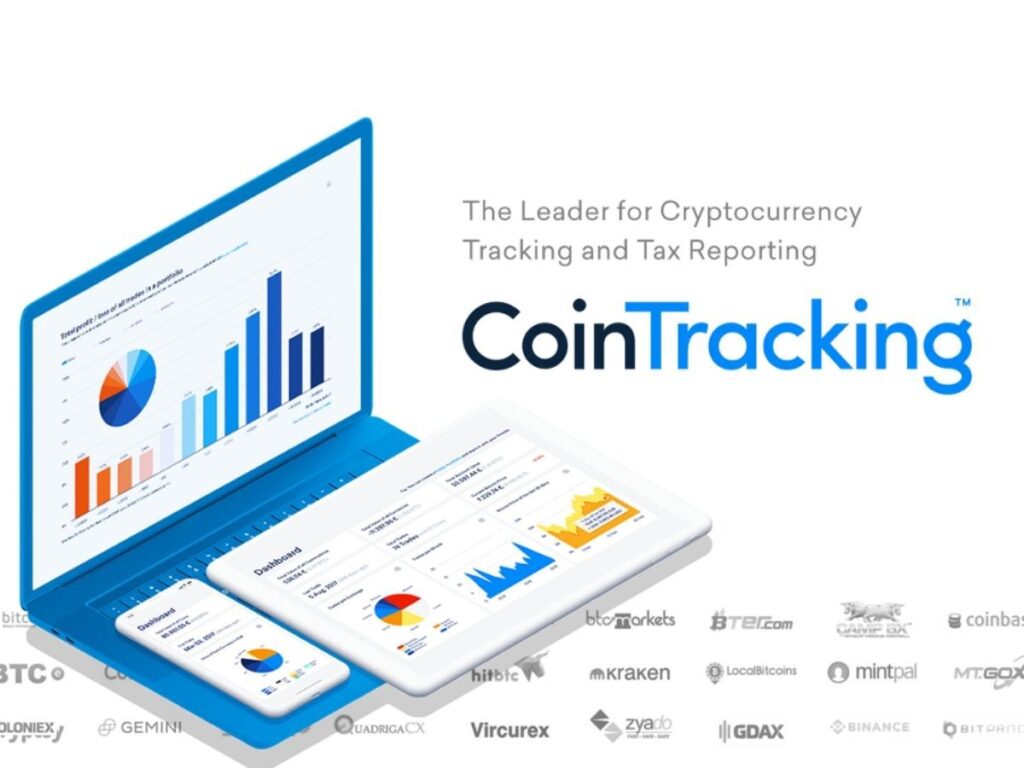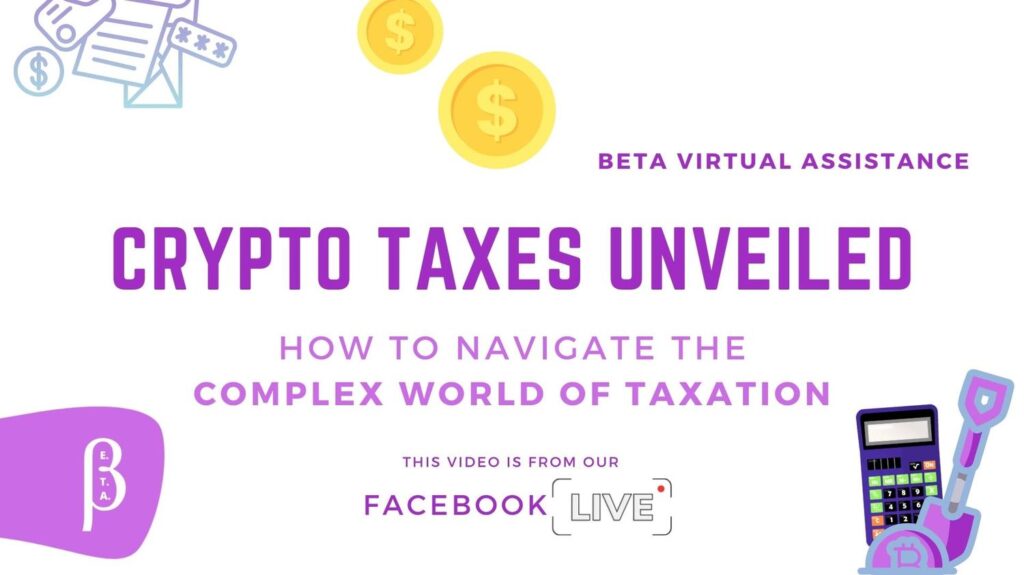
Explore the world of cryptocurrency taxation and learn how to report your crypto income and gains accurately. Discover the power of CoinTracking software and expert guidance in managing your crypto tax liability.
(This post is from our series of Facebook Lives. Catch the next one on our Facebook channel.)
First, before we get too far, this blog post may contain links to products that we have tried and liked. If you click on the link and make a purchase, we may earn a small commission, which does not increase the price for you nor directly affect whether or not we recommend the product. (We’ll even tell you which products we DIDn’t like and let you make your own evaluations!)
A Comprehensive Guide to Crypto Taxation: Tips and Tools
Welcome back to our Beta Virtual Assistance channel! Today we’re diving into the world of crypto taxation. Whether you’re a seasoned crypto investor or just starting, understanding how to handle your taxes is crucial. It’s a new month, a new quarter, and the perfect time to get your crypto tax affairs in order. So, let’s get started.
What Are Crypto Taxes?

Crypto taxes can seem daunting, but the basics are relatively straightforward. In the United States, as well as many other countries, if you receive cryptocurrency for any reason other than purchasing, or if you sell or dispose of any crypto, you’re obligated to report these transactions to your government’s tax agency. This includes not just investment gains but also income earned through mining, staking, or any form of crypto-related revenue
Reporting Crypto Taxes
So, how do you report your crypto transactions? It’s somewhat similar to reporting traditional income but with a twist. You need specialized software designed for crypto taxation. Given the evolving and complex nature of the crypto industry, the correct tool is essential.

Using Crypto Tax Software
One way to make the process easier is by using crypto tax software. This tool helps you keep track of your crypto transactions and automatically generate reports for tax purposes. Here’s how it works
API Integration
You create an API key, which stands for Application Programming Interface, to allow communication between your crypto exchange and the tax software. This key authorizes the software to fetch your transaction data securely.
Read-Only Access
When setting up the API, ensure it’s read-only. This means the software can access your transaction data but cannot make any changes or transactions on your behalf, such as purchases, trades, or withdrawals of your funds from your exchange.
Data Import
Once the API is set up, the tax software automatically imports your transaction data. This saves you from manually entering each transaction.
Reconciliation
After importing your data, you may need to reconcile your transactions. This step ensures accuracy and compliance with tax regulations and makes sure that the right story is told in your transactions so that you’re not overpaying your capital gains and earnings.
If your exchange doesn’t support API integration, you might need to download your transaction history manually, usually in CSV (Comma Separated Values, a file similar to a spreadsheet but much smaller in size) format, and then import it into your tax software.
Challenges in Crypto Taxation

Keep in mind that not all exchanges have APIs, and not all crypto tax software supports every exchange. This lack of standardization can create challenges when dealing with crypto taxes, but with the right tools, it’s manageable.
Choosing the Right Software
Selecting the right tax software is crucial. Consider the following factors:
Country and Currency
Ensure the software supports your country’s tax regulations and provides reports in your local currency.
Ease of Use
Look for user-friendly software, as some platforms can be complex and confusing.
API Integration
Choose a software that offers a wide range of API integrations or, at the very least, supports your primary exchange(s).
Income Reporting
Some tax software might not provide comprehensive income reporting. Ensure your chosen software covers both capital gains and income from crypto transactions.
CoinTracking: Our Recommended Solution

We highly recommend using CoinTracking, a powerful and versatile crypto tax software. It offers a comprehensive range of features, supports numerous exchanges, and ensures your crypto income is reported accurately. Plus, if you use our affiliate link, you’ll get a 10% discount on your subscription. It’s a win-win. (Or save 25% off an Unlimited 1-Year subscription by purchasing through our corporate account here.
The Importance of Reporting Crypto Income
One crucial aspect that some crypto tax software overlooks is reporting crypto income. It’s not just about capital gains; you must also report any income received in cryptocurrency including bonuses for opening accounts, mining, interest, and Defi protocol earnings. Failing to do so could lead to costly mistakes and potential legal issues.
Our Expertise in Crypto Taxation
We specialize in helping crypto investors navigate the often complex world of crypto taxes. We offer a range of services, from do-it-yourself courses to premium packages that take care of everything for you. Our experienced team ensures your crypto taxes are not only accurate but also compliant with the latest regulations.

Conclusion
As the IRS and other tax authorities ramp up their focus on crypto investors, now is the time to address your crypto tax obligations. Don’t wait until the last minute. Whether you’re an experienced trader or just starting your crypto journey, understanding and managing your tax liability is crucial. Reach out to us for help, and let’s ensure your crypto taxes are in order.
If you have questions or need assistance with your crypto taxes, feel free to contact us. We’re here to make your crypto tax journey as smooth as possible. See you again on Thursday at 4 p.m. for more valuable insights. Have a great week!
Stay informed about financial trends and join our live sessions.
Don’t forget to check out our mini-course on The Crypto Tax Matrix for valuable insights into managing your crypto tax obligations.
Reach out to us for any assistance with your crypto taxes. Book a call here.
Did you read our previous post about crypto taxes titled: “Crypto Tax Planning 101: How to Offset Large Gains with Smart Loss Management“
Find out more about this week’s topic by listening to our Audio Podcast and watching our YouTube video below.

This blog post contains affiliate links. If you click through any links and purchase something, I may earn a commission at no cost to you.




Leave a Reply